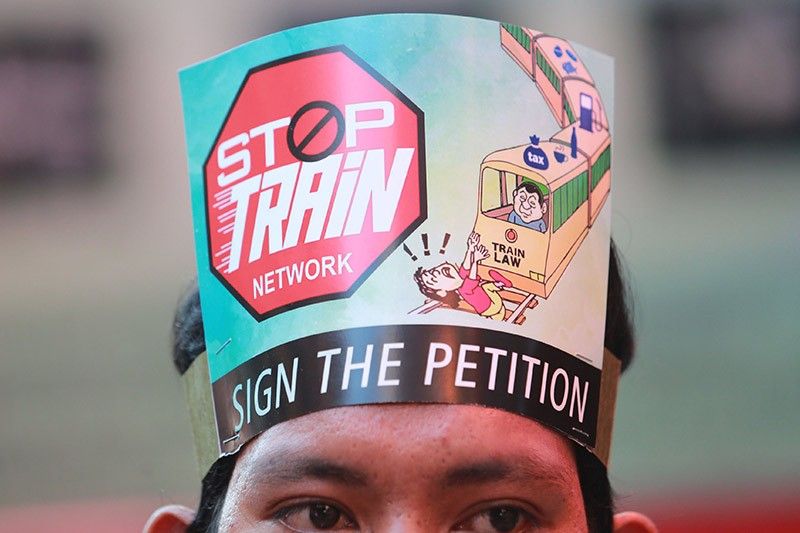Dominguez: TRAIN has been 'unfairly' blamed for rising consumer prices

MANILA, Philippines — It is “unfair” to blame the Tax Reform for Acceleration and Inclusion Act for the rising consumer prices, the country’s Finance chief said Tuesday, as the Duterte administration defends the new tax law that critics call “anti-poor.”
The tax reform law—which lowers personal income taxes while raising excise levies on fuel, sugary drinks and cigarettes, among others—has been adding upward price pressures to widely used goods and services.
Meanwhile, some lawmakers say Congress might "suspend" the TRAIN law if inflation becomes unmanageable.
In his opening statement during the first congressional hearing on Package 2 of the government’s Comprehensive Tax Reform Program, Finance Secretary Carlos Dominguez III said the TRAIN law contributes only four-tenths of a percent to the inflation rate.
“This means that for every additional peso our people have to spend because of inflation, only 9 centavos can be attributed to TRAIN,” Dominguez explained.
Using 2012 as base year, the overall surge in prices of key consumer items accelerated to a five-year high of 4.5 percent in April, putting the year-to-date tally to 4.1 percent or above the Bangko Sentral ng Pilipinas' 2-4 percent target range.
According to Dominguez, fully two-thirds of last April’s inflation rate was “typical” of a rapidly expanding economy, while the remaining was due mainly to higher global oil prices, weaker peso and robust spike in domestic demand.
Dominguez then noted that the TRAIN law’s inflationary impact—which he projects to diminish over the coming months—was limited on prices of “sin” products and sugary beverages, adding that the tax rates imposed on these commodities are intentionally punitive to improve the health of Filipinos.
He also said the Philippines is expected to bag rating upgrades soon due to the implementation of the TRAIN law.
To recall, international debt watcher S&P Global Ratings recently raised its outlook for the Philippine economy to “positive” from “stable” and said the country’s ratings could be bumped up if the government’s fiscal reform program leads to “further achievements” in the next two years.
“Revenue policies, after all, are not only about raising money to reduce deficits or meet our debt payments. More importantly, they are effective instruments for reducing poverty, investing in the future and fashioning a fairer society,” Dominguez said.
The central bank, which recently lifted policy rates to curb soaring commodity prices, now expects inflation to remain elevated in the coming months and peak “towards the end of 2018,” citing a possible jump in world crude prices and second-round effects of the tax reform law.
For his part, House Ways and Means Committee Chairperson Rep. Dakila Carlo Cua (Quirino) urged the government to immediately implement the social protection measures provided in the TRAIN act amid strong calls from various sectors to freeze the law.
- Latest
- Trending


























